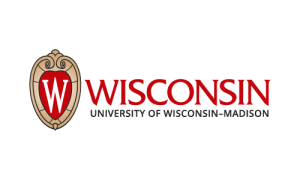University of Wisconsin: UW–Madison joins Rockefeller Foundation’s pandemic prevention institute
The Rockefeller Foundation, a philanthropy focused on health, science and social issues, today announced efforts to create an international pandemic prevention institute. By building a network of more than 20 public, private and nonprofit partners around the world, the foundation’s support is intended to help quickly thwart potential pandemic threats wherever they occur.
Among the largest goals of the institute, which will foster and fund collaborations, is to bolster genomic sequencing efforts globally, including in South Africa and parts of Asia. In the U.S., Rockefeller will support what it dubs Regional Accelerators for Genomic Surveillance, which includes the University of Wisconsin–Madison, the University of Florida, and others. UW–Madison will also work with partners in Minneapolis; Michigan; Marshfield, Wisconsin; and Milwaukee.
Since last year, researchers at the AIDS Vaccine Research Laboratory have performed a high level of genomic sequencing on the virus that causes COVID-19, combing the genetic identities of as much as five percent of all SARS-CoV-2 infections in Dane County. Nationally, scientists have sampled less than two percent of all positive cases. Genomic sequencing can provide a wealth of information about pathogens and how they spread.
“Rockefeller is trying to link different groups in the public health and academic spaces together,” says Shelby O’Connor, professor of pathology and laboratory medicine at the UW School of Medicine and Public Health. “We are starting to explore how we can branch out to other areas in the region and continue to further develop what we’ve already started here.”
The support will advance research that can be used to inform and develop new tools for public health, explains AVRL scientist and UW School of Veterinary Medicine Professor Thomas Friedrich, and produce public health data that can be used to fuel research.
The goal, he adds, is to “break through these silos and get us better public health outcomes and also more informed translational research.”
In Dane County, their efforts have already illuminated what’s possible. Because the research group’s surveillance efforts have been fast, they’ve been used to help inform real-time public health decisions in the community.
For instance, when the researchers helped identify an outbreak of COVID-19 at a local business involving a viral variant of concern, they worked closely with Public Health Madison and Dane County to provide guidance and helpful information.
With Rockefeller support, explains David O’Connor, professor of pathology and laboratory medicine (the O’Connors are married), AVRL researchers will also focus in particular on genomic surveillance among school-aged children to provide more granular data about COVID-19 spread.
And the researchers are analyzing environmental air sampling data to determine whether the presence of the SARS-CoV-2 virus can be detected in public settings, he explains. “You can imagine that this would be useful in places like airports or bus stations … or schools and cafeterias.”
The researchers say these kinds of investments can grow into larger opportunities as well, including by enhancing partnerships between other institutions in the Midwest.
“We hope that this program will let us make a bigger impact in the future,” says Shelby O’Connor.

